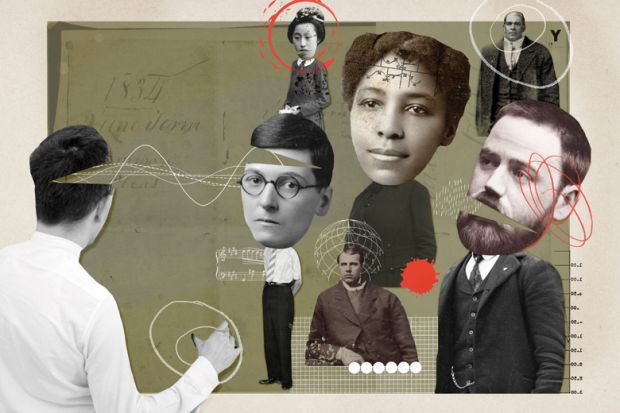The UK’s higher education sector is riven with status differences fuelled by league tables and growing concerns that not all universities and subjects deliver the same return on the fees and funding they receive.
Despite initiatives such as Key Information Sets and the teaching excellence framework, a prime measure of how well one university compares to another will remain how hard it is to get into. This input measure has little to do with the quality of teaching and learning, although it has a lot to do with graduate outcomes given that many top firms recruit almost exclusively from the more selective Russell Group universities.
Even with the current government’s drive in England for academy schools that are permitted to select a small proportion of their intakes by ability, the comprehensive principle of educating mixed abilities and backgrounds together survives in secondary education. It does so because of the iniquities of the old 11-plus exam, and the waste of the potential of the many who failed it. Yet academic selection by universities at age 18 is not controversial, seemingly on the assumption that by 18 all potential has been demonstrated.
The lack of controversy is surprising. The number of Ucas tariff points required by particular institutions to study a particular subject is often well beyond what is actually needed to succeed on the course. Such excessive selectivity means that some students’ life chances are enhanced not because of the quality of their higher education but because of the prestige that high entry requirements – among other factors – bestow on their alma maters.
This also means that although increasing the number of graduates in the workforce has expanded access to good incomes, with little dilution of the graduate premium, universities still play a significant role sorting graduates into social classes, given the strong correlation between class and prior attainment at school. Mike Savage’s book Social Class in the 21st Century, published last year, demonstrates the separate but cumulative effects of parental social class, and school and university attended, on graduates’ chances of entering the wealth elite. Much of the Russell Group performs as an employment agency matching privileged children to elite professions, while the rest of the sector is obliged to pursue “access” missions. And while it is often argued that selection reduces dropout rates – so the more selection the better – the fact that some students find it harder than others to learn is a challenge for the quality of teaching and student support, not a reason for denying opportunity.
In schools, there is evidence that mixed ability teaching achieves better results overall than separating more and less able students, boosting self-esteem and effective techniques such as peer-to-peer learning. There is also evidence that identity diversity can be used to develop complex thinking and problem solving. Yet in our universities this hardly figures in pedagogic debates and strategies. Access agreements and benchmarks treat under-represented groups as problems and diversity as a question of achieving marginal improvements in the representation of less privileged young people in the most selective institutions.
There is another problem too. Conventional academic selection by universities is denying society huge benefits from higher education. The original polytechnic idea was about students making things – whether policies, services, products or artworks – and fewer students just finding things out. It was about work-based learning, practice-based teaching, new professional doctorates and expansion of higher education as a democratising force. Applied research strengths were to be selective and complement each other at a national level.
This was all lost as the academic research paradigm and its traditional hierarchies reasserted themselves. Academics were incentivised to spend time on research and the hefty research deficits that most universities cross-subsidise from teaching income were justified by claims that the best teaching is research-led – even though there is little evidence that high-quality research produces high-quality teaching. Academic selection enabled research-intensive universities to recruit students with the highest grades, who need less teaching because they find it easier to learn. And research remained largely disconnected from the companies and organisations that could actually apply its findings: a situation not unrelated to the UK economy’s productivity problems and the failure of many public policies and professional practices to access or apply the evidence they need to be successful.
The impact element of the research excellence framework and the coming introduction of the teaching excellence framework are attempts to redress some of these issues. But they do not ask fundamental questions about whether our universities are fit for the future. Institutions with diverse student bodies, where the peak of academic achievement is to enable those with mixed abilities to learn successfully together and where the measure of great discoveries is not just densely written articles behind publishers’ paywalls but innovations that make a difference: that is an alternative vision of higher education for the 21st century.
Tim Blackman is vice-chancellor of Middlesex University.
POSTSCRIPT:
Print headline: Mixed message: when universities select by ability, nobody wins
Register to continue
Why register?
- Registration is free and only takes a moment
- Once registered, you can read 3 articles a month
- Sign up for our newsletter
Subscribe
Or subscribe for unlimited access to:
- Unlimited access to news, views, insights & reviews
- Digital editions
- Digital access to THE’s university and college rankings analysis
Already registered or a current subscriber?


